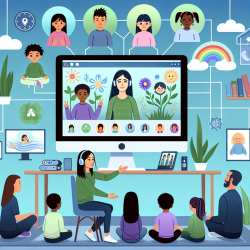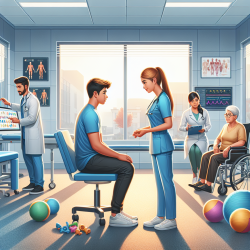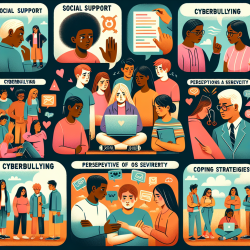As practitioners in the field of speech-language pathology and mental health, it is crucial to stay informed about the evolving methods of therapy delivery. The COVID-19 pandemic has accelerated the adoption of online therapy, providing unique opportunities and challenges. A recent qualitative study titled Online therapy with families - what can families tell us about how to do this well? A qualitative study assessing families’ experience of remote Dyadic Developmental Psychotherapy compared to face-to-face therapy offers valuable insights into how remote Dyadic Developmental Psychotherapy (DDP) can be effectively implemented.
Here are some key takeaways from the study to help you improve your practice:
- Environment and Child Engagement: The physical and online environments significantly impact child engagement. For some children, being in a familiar home setting fosters comfort and safety, aiding in emotional vulnerability. Conversely, the therapy room can provide unique stimuli that facilitate breakthroughs.
- Role of the Screen: The screen itself can be both a barrier and a facilitator. While some children find it easier to open up through a screen, others may find it distracting. Tailoring the approach based on the child's needs is essential.
- Travel: Travel time can serve as a decompression period for children and parents, helping them transition from therapy to home life. For families where travel is a burden, remote therapy offers a viable alternative.
- Non-Verbal Communication: Non-verbal cues are crucial in DDP. While these may be harder to interpret online, skilled therapists can mitigate this by using interactive tools and ensuring proper screen setup.
- Familiarity with Remote Interactions: Families with prior positive experiences with remote interactions are more likely to accept and benefit from online DDP. Familiarity with technology can be a significant predictor of success.
Practitioners should work collaboratively with families to assess how different environments impact engagement, how travel influences the therapy experience, and how previous remote work experience shapes preferences. This individualized approach will ensure that each family's unique needs are met, whether through face-to-face or remote DDP.
To read the original research paper, please follow this link: Online therapy with families - what can families tell us about how to do this well? A qualitative study assessing families’ experience of remote Dyadic Developmental Psychotherapy compared to face-to-face therapy.










